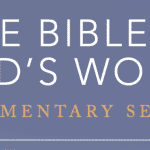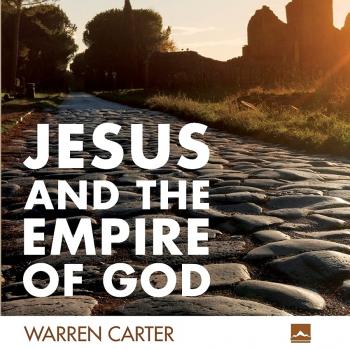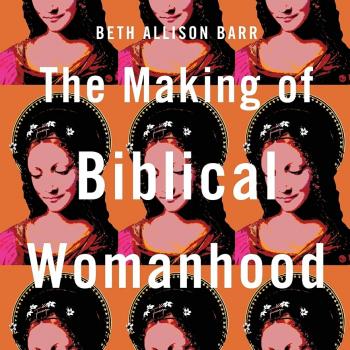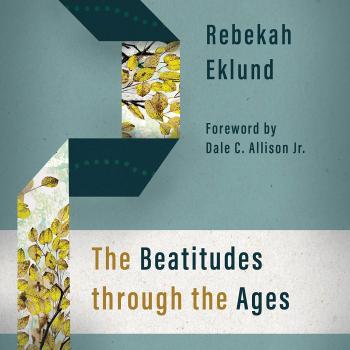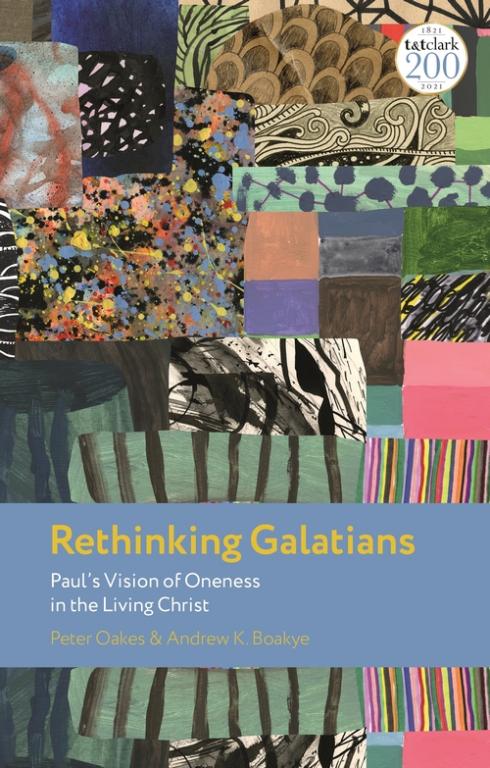There have been a lot of new books published in biblical studies over the last few months (summer/fall 2021), I want to highlight ten of them that I have had a chance to look at.
Jeffrey Weima, The Sermons to the Seven Churches of Revelation: A Commentary and Guide (Baker Academic)
I think it is great when scholars get a chance to zoom in on a particular text or set of texts deserving of close attention and interpretation. Weima is a careful scholar and he has been working on this project for a long time.
Official Description: A top New Testament scholar, preacher, and tour guide to the lands of the New Testament offers an informed commentary on this challenging portion of Scripture with an eye toward preaching the text. Jeffrey Weima explains the meaning of the seven “sermons” of Revelation 2-3 and provides sample sermons that show how these ancient messages, despite their subtle Old Testament allusions and perplexing images, are relevant for the church today. The book includes photos, maps, and charts and is of interest to preachers, students, teachers, and Bible study groups.
Gregory R. Lanier, Corpus Christologicum: Texts and Translations for the Study of Jewish Messianism and Early Christology (Hendrickson Publishers)
I love source books, and this one offers fresh translations of numerous relevant texts. It is also beautifully produced.
Official Description: A compendium of approximately three hundred texts―in Greek, Hebrew, Aramaic, Latin, Ethiopic, Syriac, Coptic, and other languages―that are important for the study of Jewish messianism and early Christology.
In recent decades, the study of Jewish messianic ideas and how they influenced early Christology has become an incredibly active field within biblical studies. Numerous books and articles have engaged with the ancient sources to trace various themes, including “Messiah” language itself, exalted patriarchs, angel mediators, “wisdom” and “word,” eschatology, and much more. But anyone who attempts to study the Jewish roots of early Christianity faces a challenge: the primary sources are wide-ranging, involve ancient languages, and are often very difficult to track down. Books are littered with citations and a host of other sometimes obscure writings, and it can be difficult to sort them all out.This book makes a much-needed contribution by bringing together the most important primary texts for the study of Jewish messianism and early Christology―nearly three hundred in total―and presenting the reader with essential information to study them: the critical text itself (with apparatus), a fresh translation, a current bibliography, and thematic tags that allow the reader to trace themes across the corpus. This volume aims to be the starting point for all future work on the primary sources that are relevant to messianology and Christology.
“‘Read the primary sources first, and study them carefully.’ That is a mantra I was taught and one that I try to live by as a researcher. So, I consider Corpus Christologicum a special gift to students of early Judaism, the New Testament, and early Christianity. This is one of those kinds of books you keep close at hand and open often. I know I will.”
—Nijay K. Gupta, Professor of New Testament, Northern Seminary
Stephen E. Young, Our Brother Beloved: Purpose and Community in Paul’s Letter to Philemon (Baylor University Press).
I am working on Philemon at the moment, and it was on my checklist to read this new book. So, I have been carefully and slowly soaking it in over the last couple of months and it is really good. Young questions previous, cherished situational theories and provides strong pushback. He re-examines the letter afresh using “positioning theory” which includes aspects of sociology of knowledge and social-scientific interpretation. It is the most up-to-date analysis of Philemon scholarship available.
The Letter to Philemon has been read by generations of interpreters, including towering figures such as John Chrysostom, as having to do with Paul returning the fugitive slave Onesimus to his master. Hence the letter, at best, was made complicit in the institution of slavery and, at worst, was foundational for the view that slavery was God ordained. This oppressive interpretation still holds sway in the academy and church alike.
In his interdisciplinary study, Stephen E. Young sets a new trajectory for understanding this unassuming epistle. Our Brother Beloved: Purpose and Community in Paul’s Letter to Philemon opens with a case study on the use of the Letter to Philemon in the debates surrounding slavery and fugitive slaves in antebellum America. The book then analyzes the major background stories that have been used as keys to interpret the letter, showing that past and present oppressive uses of the Letter to Philemon are due not to the letter’s contents but to the persistence of erroneous readings. Young provides a new interpretation that accounts for every element of the Letter to Philemon while also addressing many shortcomings of previous interpretations. In so doing he pioneers the use of Positioning Theory, from the field of social psychology, as an analytical approach, opening up a new avenue for the study of ancient texts.
That texts shape the identity of readers is widely recognized, but biblical scholars tend to disregard the process by which that influence unfolds. Young demonstrates how the Letter to Philemon sought to shape the identity of its readers within their sociocultural context by molding them into a community of deliverance, one that could receive Onesimus no longer as a slave but as a brother and fellow worker in the gospel. Such a fresh reading carries strong implications for the ongoing cause of social justice.
Joel B. Green, Discovering Luke (Eerdmans)
Green is a leading scholar on Luke, author of the acclaimed NICNT volume, and an excellent writer (and a great person too!). This book gives you a quick guide to the Third Gospel and its scholarship. Green is especially interested in narrative criticism, reception history, and theological interpretation.
Official Description: This interpretation of Luke encourages in-depth study of the text and genuine grappling with the theological and sociohistorical questions it raises. It draws on a range of methodological interests (author-, text-, and reader-centered) as complementary rather than mutually exclusive ways of understanding the text. It also recognizes the importance of the reception history of biblical texts, increasingly viewed as a vital aspect of interpretation rather than an optional extra.
Throughout Discovering Luke, Joel Green gives readers strategies for reading the Gospel of Luke and guides them through Luke’s world in its historical, ideological, political, and economic contexts. Green reviews key issues raised by the Gospel and connects these issues to questions of how Luke should be interpreted today.
Angela N. Parker, If God Stills Breaths, Why Can’t I?: Black Lives Matter and Biblical Authority (Eerdmans)
Parker offers a stirring discussion of how Whiteness pervades traditional scholarship and can sometimes further disenfranchise those who are already on the margins. If you are a white evangelical, this book will make you uncomfortable, and for that reason it must be read and taken seriously.
Angela Parker wasn’t just trained to be a biblical scholar; she was trained to be a White male biblical scholar.
She is neither White nor male.
Dr. Parker’s experience of being taught to forsake her embodied identity in order to contort herself into the stifling construct of Whiteness is common among American Christians, regardless of their race, ethnicity, gender, or sexual orientation. This book calls the power structure behind this experience what it is: White supremacist authoritarianism.
Drawing from her perspective as a Womanist New Testament scholar, Dr. Parker describes how she learned to deconstruct one of White Christianity’s most pernicious lies: the conflation of biblical authority with the doctrines of inerrancy and infallibility. As Dr. Parker shows, these doctrines are less about the text of the Bible itself and more about the arbiters of its interpretation—historically, White males in positions of power who have used Scripture to justify control over marginalized groups.
This oppressive use of the Bible has been suffocating. To learn to breathe again, Dr. Parker says, we must “let God breathe in us.” We must read the Bible as authoritative, but not authoritarian. We must become conscious of the particularity of our identities, as we also become conscious of the particular identities of the biblical authors from whom we draw inspiration. And we must trust and remember that as long as God still breathes, we can too.
Brendan Byrne, Paul and the Economy of Salvation (Baker Academic)
I have not read this book yet, but I know Byrne from his excellent Romans commentary and his wider work on the New Testament.
Official Description: This major contribution to Pauline scholarship by a widely-respected New Testament scholar is the culmination of over forty years of teaching on Paul. Brendan Byrne demonstrates that topics often discussed in Pauline studies and Christian theology go astray when the significance of the last judgment falls from view. Offering a fresh Catholic perspective that engages with centuries of Protestant interpretation, this book recaptures the significance of the motif of the last judgment for the interpretation of Paul.
Markus Jerkins, Black Lives Matter to Jesus: The Salvation of Black Life and All Life In Luke and Acts (Fortress Press)
I read and endorsed this fine book. It is both a great specimen of exegetical study of Luke-Acts and a thoughtful theological work commenting on Luke’s vision of a many-colored kingdom.
Here is my endorsement:
“Jerkins argues that an ‘I don’t see color’ attitude toward race and ethnicity is not a biblical perspective, certainly not reflective of Luke’s Gospel and the book of Acts.” —Nijay K. Gupta, Northern Seminary
Official Description:
The third evangelist makes Black-skinned people central to his claim in Luke and Acts that the gospel of Jesus is restoring the children of God. Within Luke’s literary environment, the identity of the children of God was linked to national/ethnic identity. Many Jewish texts argued for the Jews’ position as God’s children because they are bound to God by covenant; they are God’s firstborn. But there is also a more general sense within this tradition that all human beings are made in the image of God and are, thus, the children of God through Adam. In the Gospel, Luke asserts that all nations and all ethnicities, including Israel, have questionable filial status vis-à-vis God. Both Israel and the nations are restored in status as God’s children through Jesus, the Son of God.
In Acts, Luke explores the initial return of Israel and all ethnicities to God through the witness of the church empowered by the Spirit. To epitomize the return of all nations to God, Luke narrates the salvation of Black-skinned Africans. These Black lives are emphasized to signify that their representation in the church demonstrates the universal extent to which the salvation of Jesus Christ will reach. Their presence in the church is also meant to dignify their Black skin against an aesthetic bias that was prevalent in Greco-Roman views at that moment. This subversion of ethnographic bias helped Luke’s audience sustain a gospel-centered critique against the devaluation of Black life.
Discovering Biblical Equality, Third Edition (IVP Academic): Editors, Ronald Pierce, Cynthia Long Westfall, Christa McKirland
The first edition of this book played a crucial role in turning me away from Piper/Grudem and towards an egalitarian/mutualist approach. There is a nice blend of older essays that stand the test of time (Fee, Keener, Belleville) and new material from Westfall, Cohick and others.
Here is my endorsement:
“The earlier editions of Discovering Biblical Equality were foundational for my understanding of men and women in the Bible. This third edition retains the best of what came before and adds lots of fresh materials to strengthen the case for biblical equality and mutuality. This continues to be the best all-in-one resource for understanding a Christian theology of women in ministry, family, and society.”
— Nijay K. Gupta, professor of New Testament at Northern Seminary
Frederick Dale Bruner, The Letter to the Romans: A Short Commentary (Eerdmans)
Bruner’s work on Matthew and John is well known. He draws deeply from the well of Christian tradition and gets to the heart of the text where we find the beauty and power of the gospel.
Official Description:
In the wake of his widely appreciated commentaries on the Gospel of Matthew and the Gospel of John, noted theologian and exegete Frederick Dale Bruner turns his attention to Paul’s letter to the Romans. In this concise commentary, he relays his findings on what he calls the “Fifth Gospel” and its central claim that “through the Father’s love, Jesus’s passion, and the Spirit’s application of this passionate love, human beings can have a perfectly right relationship with God—by simple faith in His Christ.”
As he did in his commentaries on Matthew and John, Bruner engages historical interpreters from the patristic period to the present—including Augustine, Chrysostom, Aquinas, Luther, and Calvin—while also offering his own lucid translation of the text and relevant pastoral applications. The result is a holistic understanding of the book of Romans informed not only by one scholar’s lifetime of ministry, teaching, and learning, but also by the full depth and breadth of church tradition.
Richard S. Briggs, The Lord is My Shepherd: Psalm 23 for the Life of the Church (Baker Academic)
I am really excited about this new series (The Touchstone Texts, editor: Stephen Chapman)! Briggs gives the series a great start with his work on Psalm 23. I’ve already started reading it—Briggs is a very gifted writer.
Official Description:
There are few biblical texts more familiar to Christians than Psalm 23: “The Lord is my shepherd; I shall not want . . .” It is one of the Bible’s most popular passages, retaining a special place in ministry and giving hope to the burdened.
Internationally recognized Old Testament scholar Richard Briggs helps readers understand the power and vision of Psalm 23. He offers a close word-by-word and phrase-by-phrase reading of this classic and beloved text, showing how it can speak afresh to the life of the church today. Briggs explores the reception of Psalm 23 down through the ages, covers background issues, and examines the ways the psalm addresses practical issues such as stress, death, enemies, and hope. The book helps reconnect the Christian church to the Old Testament, making it perfect for sermon preparation and small group study.
The Touchstone Texts series addresses key Bible passages, making high-quality biblical scholarship accessible for the church. The series editor is Stephen B. Chapman, Duke Divinity School.











